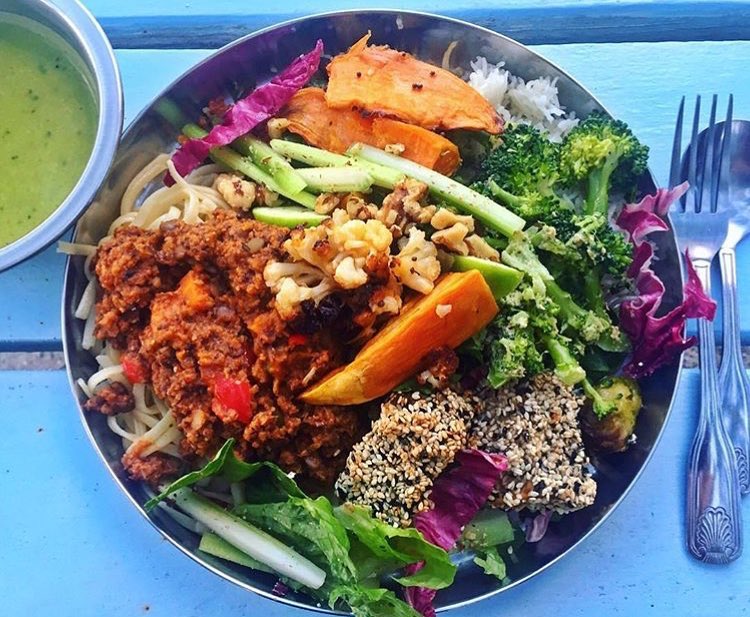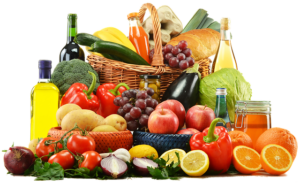Vegetarianism
Vegetarianism is a plant based nutritional diet without the consumption of meat or by-products of slaughtered animals. The three common types of vegetarians are Lacto, Ovo and Lacto-Ovo. The Lacto-vegetarians avoid egg, poultry, seafood, meat and allows dairy products in their diet. Ovo-vegetarians eats food that contains egg, but eliminate the consumption of poultry, seafood, meat and dairy products. Lacto-Ovo vegetarian diets exclude meat, seafood, poultry and include dairy and eggs in their diet.
Plant-based food sources such as grains, pulses and legumes are undoubtedly healthy and provides enough protein, vitamins, minerals etc. which is vital to human health and wellness.
Vegetarian Myths
There are several myths that surrounds vegetarianism and vegetarian diet. A common belief is that plant-based diet cannot supplement enough nutritional value required for the body. A good vegetarian diet includes legumes, grains, seeds and nuts which provide enough fibre, protien, vitamins and healthy fat for the body. A Lacto or Lacto-Ovo vergetarian person gets more calcium and other nutrients from eggs and dairy products that may strengthen the Bones.
Benefits of Vegetarian diet
Human body breaks down food to digest and make it part of our body. Studies have shown that plant-based food is less complex to break down compared to meat and can absorb easily into the body.
The digestion process for plant-based food can take around 8 to 12 hours whereas the meat-based diet can go around 18 to 24 hours. The longer duration for the digestion of food in the intestine may cause build-up of bacteria in the gut and may upset stomach and can eventually lead to illnesses.
A healthy diet is significant to keep the body, mind and spirit at its optimum. Plant-based foods are less complex for the human body to breakdown and digest and the meat products are more complex and therefore cause a delay to digest and expel the waste out of the body.
The roots of Vegetarianism spread across different cultures and civilizations from ancient India to Greece. The practice of vegetarianism dates back in India from the Vedic period. Ayurveda, the ancient science of life describes the health and wellness of our body which recommends a balanced-diet, healthy body and mind.
Vegetarian recipes
Preparing a balanced vegetarian-diet is key to vegetarianism. Tasty traditional and contemporary vegetarian recipes are easy to prepare using fresh or dry food produce. From healthy sandwich, soups, pizzas or curry, a wide range of healthy options are available for vegetarians.
maximizing the consumption of positive pranic foods in our diet such as fruits, nuts, and seeds enhances the vital life energy in our body. Choosing proper food for our diet helps to maintains a healthy body but also build a sustainable eco system for our planet.
Some popular Vegetarian Meal choices
1.Mixed Vegetable Soup – Usually served with bread or plain rice with yogurt.
2.Mixed Vegetable fried rice
3.Mixed Vegetable noodles
4.Vegetarian Tacos
5.Lental soup – served with Naan or Roti
6.Baked Paneer with spice rub – served with Naan, Roti or rice
7.Vegetarian pasta or Lasagna
Avoid processed food
Processed food products are often prepared to instantly consume with minimum or no cooking. These products are generally prepared for longer shelf life and often contains preservatives and additives. Mostly the ingredients used in these types of food products are considered unhealthy if used regularly.
A few things to check before you buy
- Artificial flavors or preservatives added?
- Are ingredients natural?
- Amount of trans or saturated fat?
- Any artificial sweeteners?
- Sodium (salt) level?
- Contains MSG (Monosodium glutamate)? MSG is commonly used as a taste-maker or salt substitute in Asia
- Added sugar and level?


